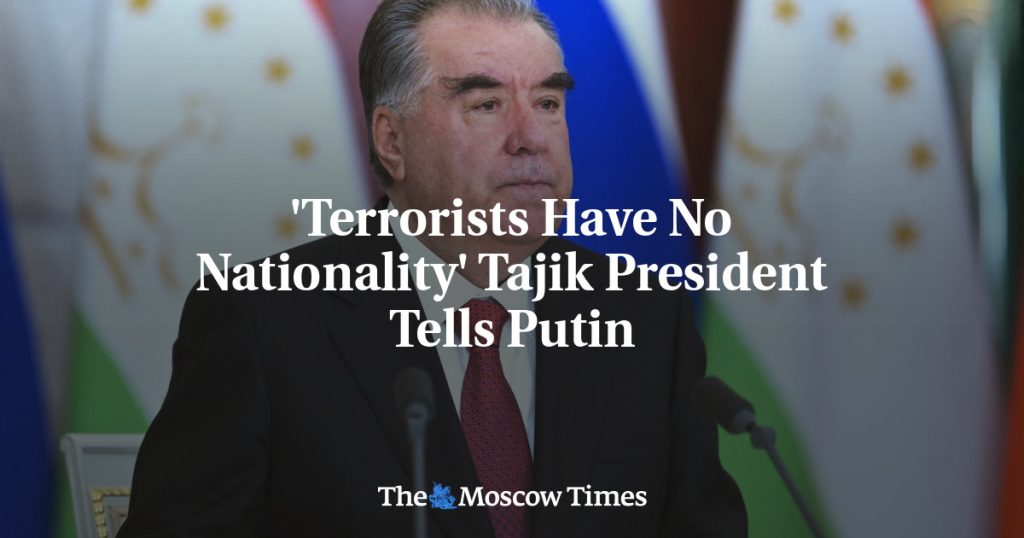The president of Tajikistan recently condemned the attack on a Moscow concert hall in a call with Russian leader Vladimir Putin, following allegations that the gunmen involved were Tajik citizens. Russian media and a lawmaker have suggested that the four suspects arrested were Tajiks, while Russian authorities have only confirmed that the suspects were foreign nationals. Tajikistan has denied these claims and emphasized that terrorists have no nationality, homeland, or religion. The Islamic State (IS) group, which has claimed responsibility for the attack, is known to be active in Tajikistan, which shares a border with Afghanistan.
The phone call between President Emomali Rahmon and President Putin did not directly address the reports of the gunmen’s citizenship, but instead focused on joint counter-terrorism efforts. The Tajikistan foreign ministry labeled reports of its citizens’ involvement in the attack as “fake” and confirmed that two of the suspects named by Russian media were in Tajikistan at the time of the incident. President Putin stated that a total of 11 people had been arrested in connection with the attack, including the four suspected gunmen who were reportedly attempting to flee to Ukraine.
The Kremlin announced that the two leaders had agreed to enhance their collaborative efforts in combating terrorism following the attack. Even though IS has claimed responsibility for the incident multiple times, Russian officials have not publicly addressed these claims. The involvement of Tajik citizens in the attack has raised concerns about extremist activity in the region, especially given Tajikistan’s proximity to Afghanistan, where the IS group is known to operate. President Rahmon’s statements highlighting the lack of nationality, homeland, and religion of terrorists underscore the importance of global cooperation in addressing terrorism.
The attack on the Moscow concert hall underscores the ongoing threat posed by terrorist organizations like IS and the need for increased international cooperation in combating extremism. The conflicting reports regarding the citizenship of the suspects highlight the challenges of dealing with transnational threats and the importance of accurate information in addressing terrorist acts. The statements from both Russian and Tajik authorities emphasize the need to confront terrorism collectively and prevent further attacks from occurring in the future. By intensifying their joint counter-terrorism efforts, the two countries hope to strengthen their defenses against potential threats and maintain security within the region. The alleged involvement of Tajik citizens in the attack serves as a reminder of the global reach of terrorist groups and the importance of vigilance in combating their influence.


